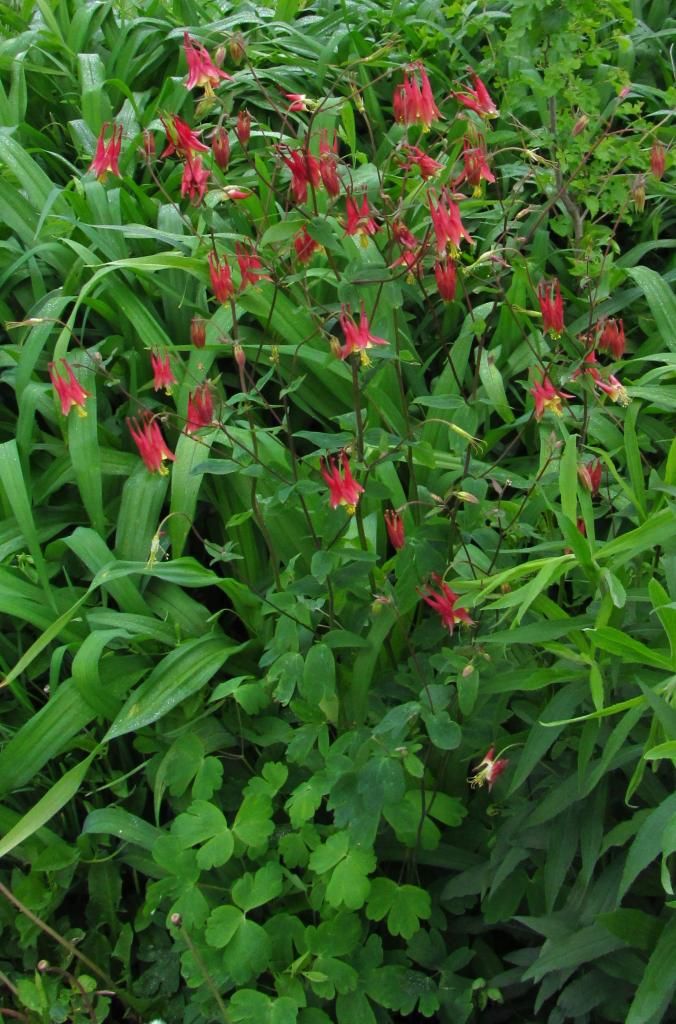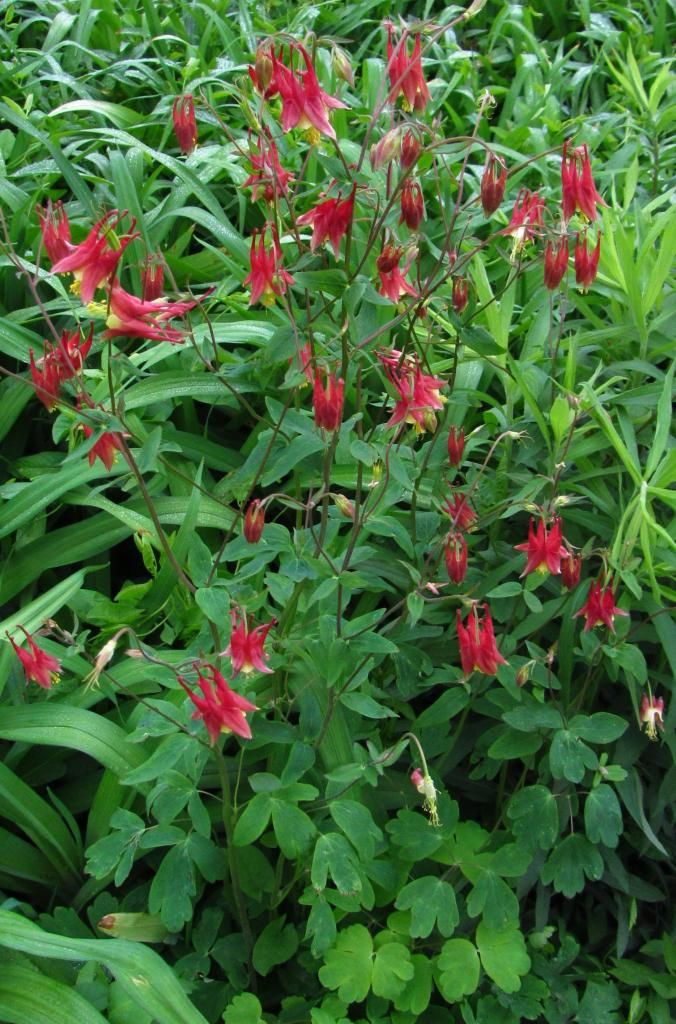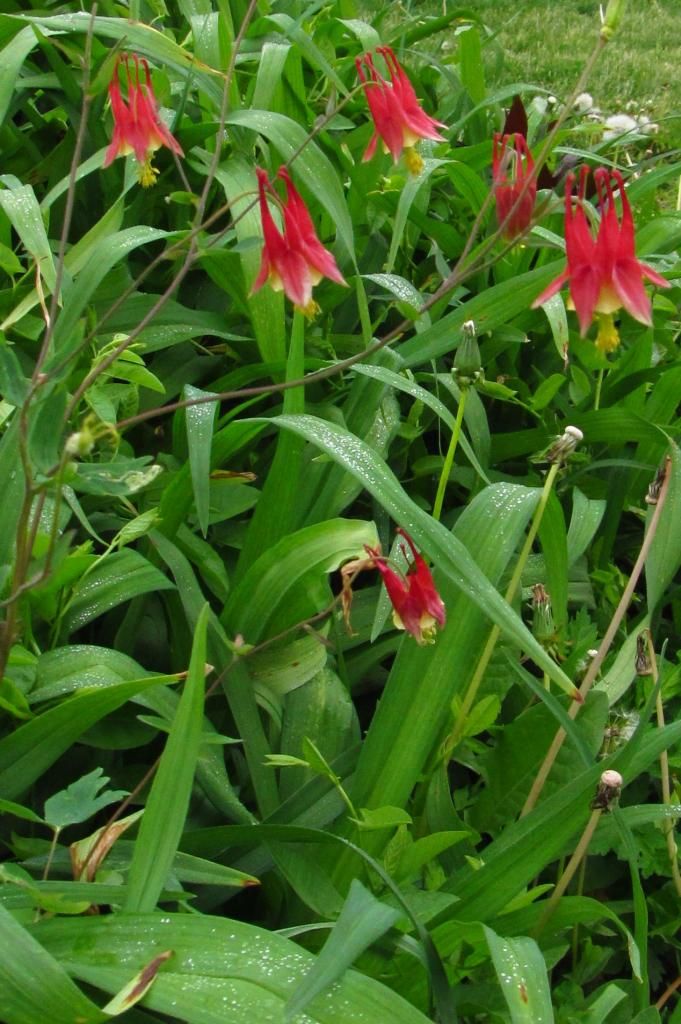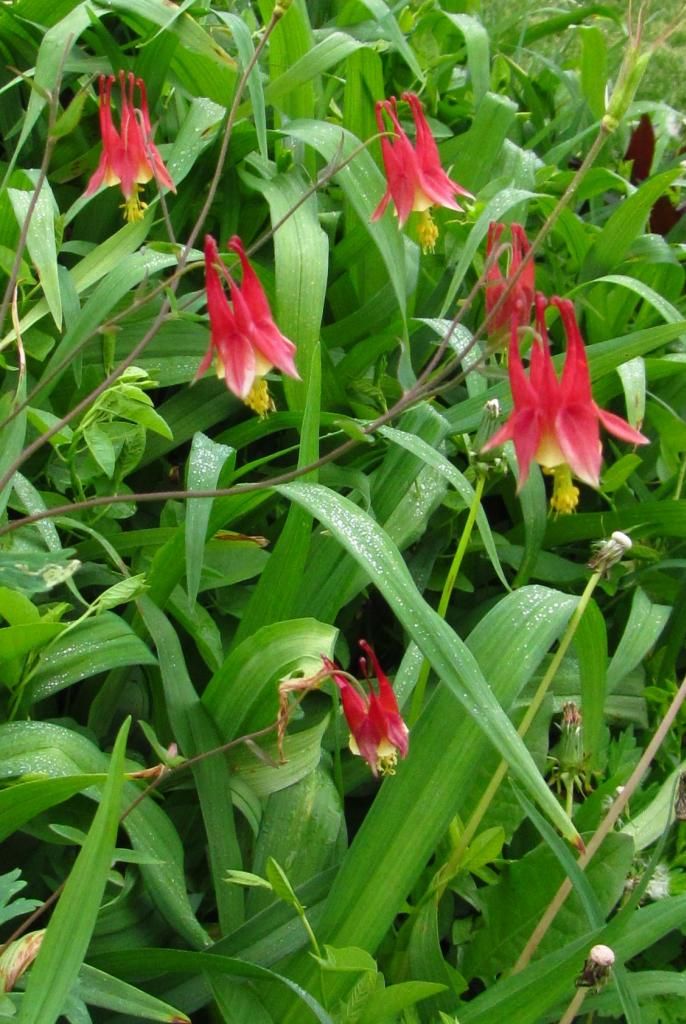I’m cheating a bit this week, because while the featured wildflower is a bona fide Iowa native, I took the enclosed photographs at a butterfly garden in Windsor Heights, not in a natural woodland setting. In contrast to the unassuming littleleaf buttercup and sweet cicely profiled the last two weeks, Columbine has spectacular blossoms and is therefore popular in gardens. It can be found in the wild throughout Iowa as well. In past years, I’ve seen it growing along the Bill Riley bike trail in Des Moines.
The columbine that is native to Iowa looks quite different from the blue columbine that is the state flower of Colorado, but both plants are in the buttercup family.
This is an open thread: all topics welcome.
Aquilegia canadensis is also known as Eastern red columbine or wild red columbine. This description comes from the Lady Bird Johnson Wildflower Center at the University of Texas.
This is an erect, branching perennial, up to 2 ft. tall, well-known for its showy flowers. A nodding, red and yellow flower with upward spurred petals alternating with spreading, colored sepals and numerous yellow stamens hanging below the petals. The compound leaves, divided into round-lobed threes, are attractive in their own right.
This beautiful woodland wildflower has showy, drooping, bell-like flowers equipped with distinctly backward-pointing tubes, similar to the garden Columbines. These tubes, or spurs, contain nectar that attracts long-tongued insects and hummingbirds especially adapted for reaching the sweet secretion.
According to Wildflowers of Iowa Woodlands by Sylvan Runkel and Alvin Bull,
Only those pollinators with long tongues can reach the nectar. Bees which attempt to get to the nectar by cutting through the tube find the tube tissue secretes a bitter juice which discourages such efforts. […]
Omaha and Ponca Indian men used to rub pulverized seeds on their palms as a love potion before shaking hands with a loved one. This was also supposed to make them more persuasive when speaking to a council.
A hair wash was made by boiling the entire columbine plant. Roots were boiled and eaten by western Indians in times of famine.
Columbine can produce a lot of flowers in a small space.
These two pictures show closer views of the blossoms.




